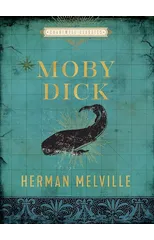"I and My Chimney" by Herman Melville is a satirical novella that offers a whimsical exploration of domestic life and societal norms. Set in a quaint New England home, the story is narrated by an eccentric homeowner who becomes embroiled in comical and philosophical musings surrounding his chimney. Melville's narrative is characterized by its playful tone and incisive wit, as the narrator delves into the significance of his chimney as a symbol of domesticity, comfort, and tradition. Through humorous anecdotes and sharp observations, Melville casts a satirical eye on the conventions of domestic life in 19th-century America, offering a critique of societal expectations and values. As the narrator navigates through encounters with family members and visitors, including his opinionated wife and a skeptical clergyman, the novella unfolds as a delightful and thought-provoking exploration of human nature and the meaning of home. "I and My Chimney" showcases Melville's versatility as a writer, blending elements of satire, humor, and social commentary to create a charming and insightful work of fiction that continues to resonate with readers today.
Herman Melville
Herman Melville (1819-1891) was an American novelist, poet, and short story writer best known for his novel "Moby-Dick," a complex and symbolic work that explores themes of obsession, fate, and the struggle between good and evil. Melville's writing style is characterized by its rich symbolism, philosophical depth, and exploration of existential themes. His other notable works include "Typee," "Billy Budd," and "Bartleby, the Scrivener." Melville's contributions to literature have had a lasting impact on the development of American literature, particularly in the genre of the novel.









